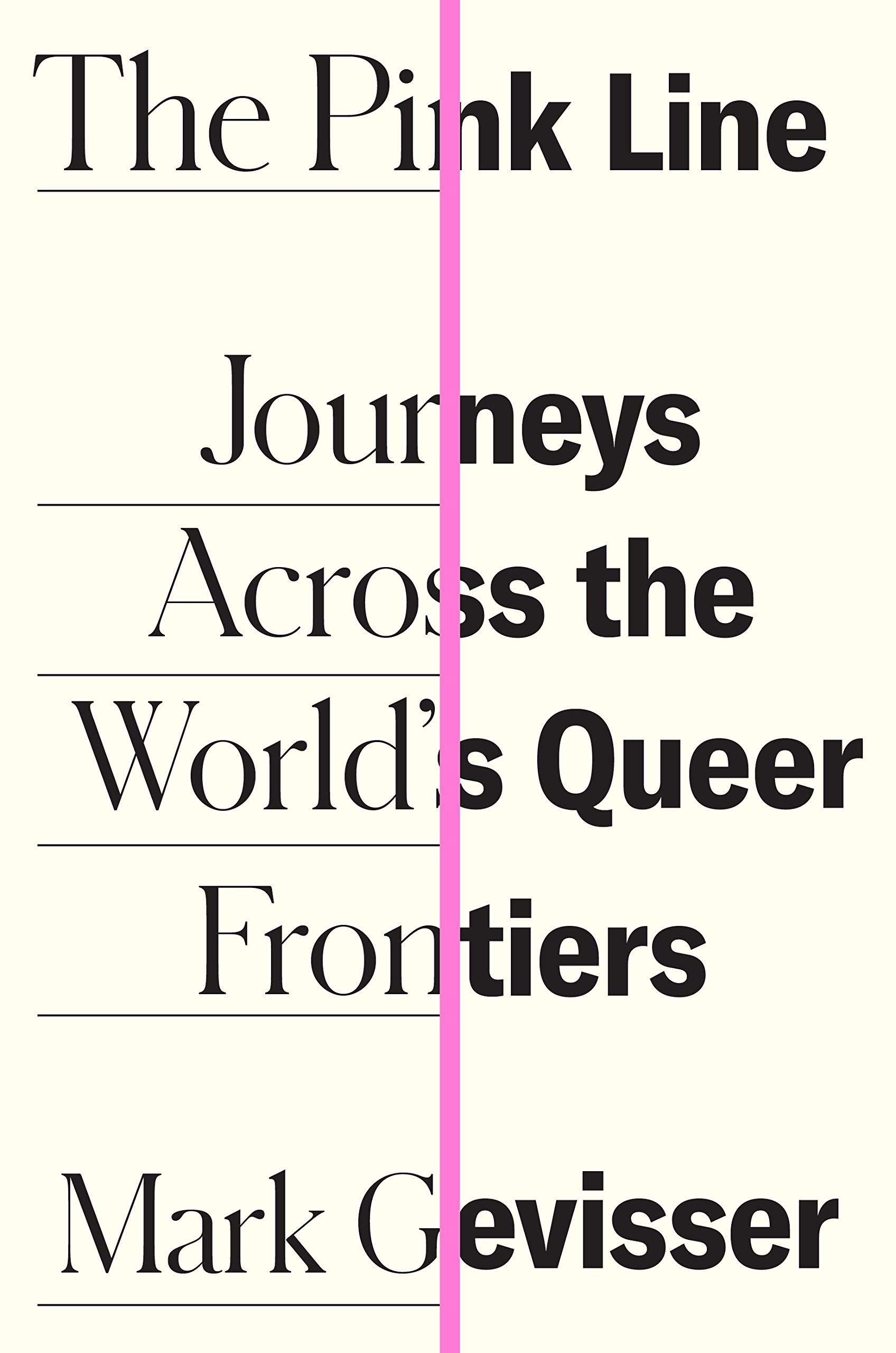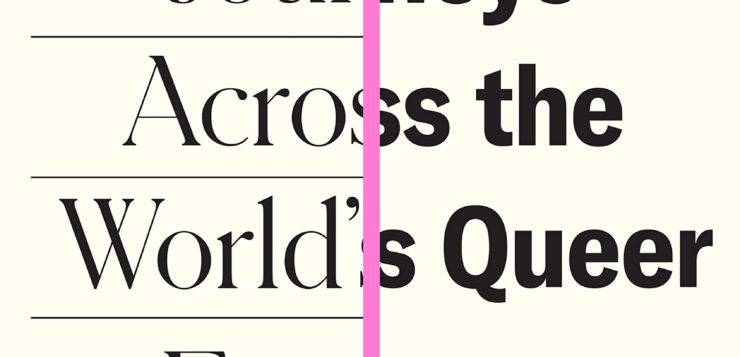 The Pink Line: Journeys Across the World’s Queer Frontiers
The Pink Line: Journeys Across the World’s Queer Frontiers
by Marc Gevisser
Farrar, Straus and Giroux. 544 pages, $30.
SOUTH AFRICAN journalist Marc Gevisser’s new book about gay rights around the world, The Pink Line, inevitably echoes many of the points made by French journalist Frédéric Martel in Global Gay: How Gay Culture Is Changing the World (reviewed in the Sept.-Oct. 2018 issue). In both books we learn that the gay liberation associated with Europe and the U.S. is seen in many countries as a form of Western decadence, that the leaders of Russia and Iran use the homosexual “threat” to bolster anti-Western nationalism, that American evangelicals have contributed to homophobia in Africa, and that life for an “aunty man” in Uganda or a lesbian in Egypt can be extremely brutal. Both also show that, on the other hand, gay rights are now equated with modernity, the creative class, and the “pink dollars” spent by gay tourists. But that is where the similarity between Martel’s tour d’horizon and Gevisser’s ends.
Gevisser, perhaps best known for his biography of Thabo Mbeki, the South African president whose refusal to accept HIV as the cause of AIDS cost, it is estimated, 300,000 lives, says that he prefers to analyze issues by telling people’s stories, and so, like a good biographer, he has filled The Pink Line with individual lives. Its chapters alternate between portraits of his subjects’ struggles to express their sexuality and an overview of the issues their efforts raise, so that, for example, a chapter called “The Transgender Culture Wars” is followed by an account of the lives of a handful of teenagers in Ann Arbor, Michigan, dealing with just that.
I cite the chapter on Ann Arbor because at a certain point the reader realizes that, although The Pink Line is an updated description of gay rights around the world, the primary impression it makes is
Andrew Holleran is the author of the novelsDancer from the Dance, Nights in Aruba, The Beauty of Men, andGrief.








Discussion1 Comment
The maddening grief, and at times stunningly heroism exhibited in the stories of these individuals, is what makes this book so powerful. One can read studies, debate the politics of LGBTQ+ rights in our conferences and on-line, but sometimes we forget the fragility of our ideas in the face of the reality that millions have to live with in the vast “global South” that stretches beyond the relative safety of Europe and North America. Bravo to Andrew Holleran for bringing attention to this remarkable book, and for summarizing it in his inimitable style. Hopefully this work of love by Mr. Gessiver is read by every person interested in moving our movement towards justice and equality.